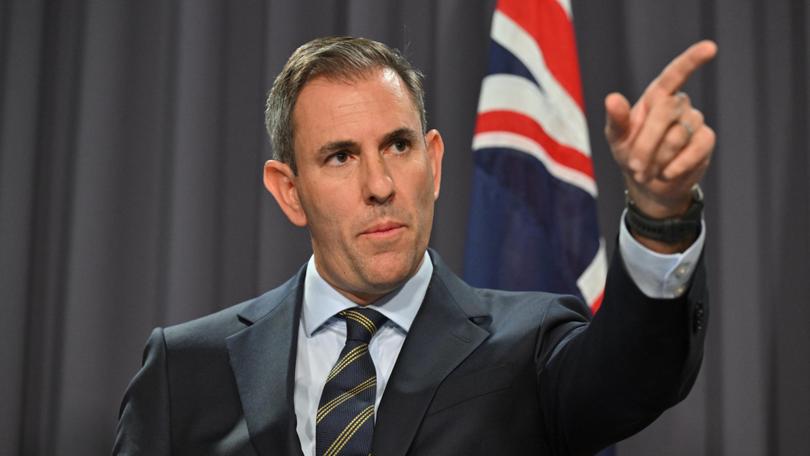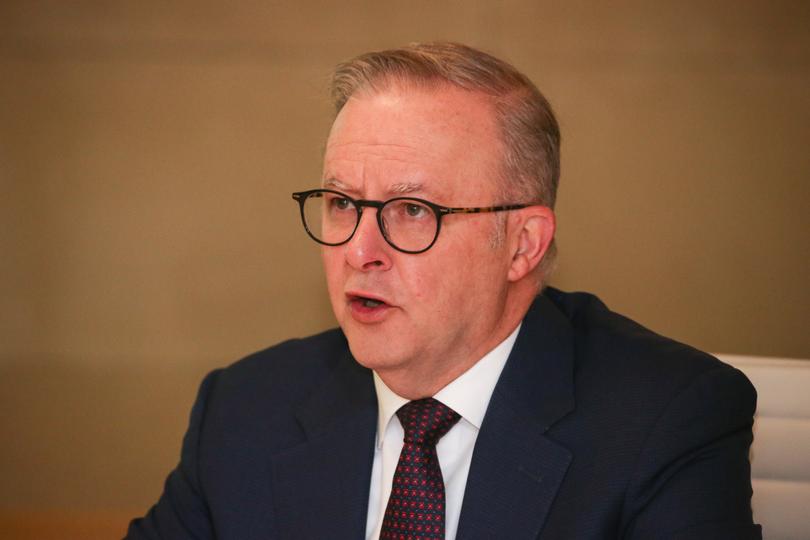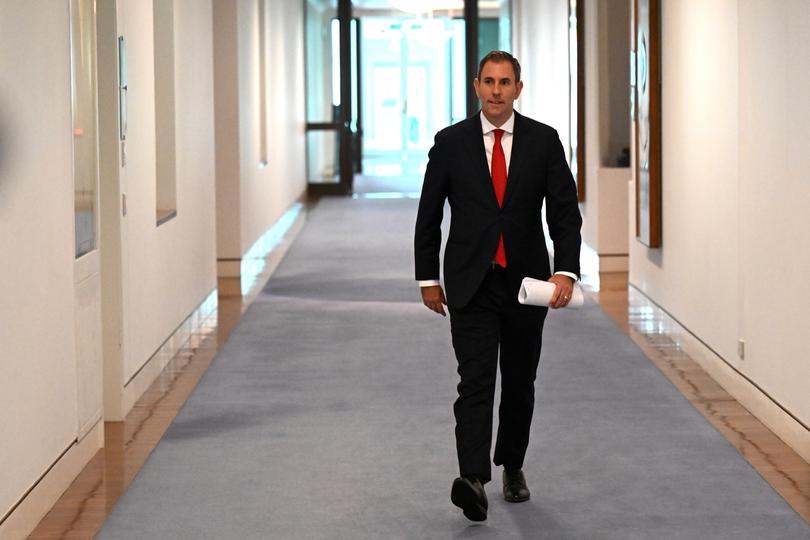Budget 2024: Early educators poised for wage rise as wary Jim Chalmers curbs spending
Childcare workers are expecting they will be in line for a substantial pay rise in next week’s Federal Budget.

Childcare workers are expecting they will be in line for a substantial pay rise in next week’s Federal Budget.
However, the amount of money set aside may not be disclosed as the Government and the sector waits on Fair Work Commission decisions in its annual review of the minimum wage and awards, and a multi-employer bargaining case.
Treasurer Jim Chalmers, pictured, is promising a Budget that shows spending restraint but says it’s not the time for “scorched earth austerity” with slower growth looming over the next few years.
Sign up to The Nightly's newsletters.
Get the first look at the digital newspaper, curated daily stories and breaking headlines delivered to your inbox.
By continuing you agree to our Terms and Privacy Policy.He acknowledges pressure is increasing on the bottom line, with expenses in defence, health and aged care and the NDIS still increasing.
However, he insists the Government is “chipping away” at the structural problems underpinning the Budget.
While a slim surplus is in sight for the current financial year, lower revenue increases than in previous years mean there will still be deficits over the forward estimates.

Prime Minister Anthony Albanese indicated on Monday the childcare sector would be next in line among poorly paid, highly feminised industries to be granted a significant pay rise, backed by taxpayer funding.
“We have the aged care wage increase, that’s been substantial. We’re looking of course, at early educators as well,” he said.
Multiple people involved in different aspects of the early education sector told The West Australian they expected to see provision made in the Budget next week.
While the Government is yet to make a public declaration it would fund any pay rise the Fair Work Commission mandated, as it did for aged care workers last year, it is understood to have made private undertakings to that effect.
Samantha Page, chief executive of advocacy group Early Childhood Australia, said wages and conditions had to be addressed urgently and Government engagement with the sector needed to translate into money in pay packets “if we are to have any hope of stabilising the workforce”.
“Some kind of positive statement like we are intending to fund wage increase for childcare workers would be very welcome,” she said.
The sentiment was echoed by the United Workers Union early education director Carolyn Smith, who said low wages meant staff were leaving the sector in droves.
Dr Chalmers said people should judge his Budget books not by the overall level of money spent, but by the quality and timing of that spending.
Over the past week, the Government has announced several new spending measures that will be in the Budget, including making permanent a program that offers money to women fleeing abusive relationships, changing the arrangements on student loan indexation and offering payments to teaching, nursing and social work students while they are on practical placements.
Finance Minister Katy Gallagher and Dr Chalmers said there was a range of other “unavoidable spending” in the Budget as well, such as extending measures that faced funding cliffs.

Dr Chalmers believed he had found a responsible middle path through the need to fight inflation in the first couple of years covered by the Budget and promote growth during the back parr.
“There will be more spending restraint in this budget and there will be more savings in this budget as well,” he said on Monday.
“But this is not the time for scorched earth austerity. It would not be wise when people are doing it tough and when the economy is soft for us to slash and burn in this budget.”
They have found at least another $1 billion in savings as well, Senator Gallagher said.
“Every time we do this work, every time we lock ourselves in the room with folders and ministers come in to talk about their portfolio ... just as much as we’re open to listening to their good ideas, we’re also listening and asking about savings that we can find,” she said.
Quarterly inflation figures released in the past fortnight have fuelled speculation the Reserve Bank would delay rate cuts and could even try one more rate rise to deal with sticky high prices in areas such as school fees and insurance.
These numbers have fed into Treausury’s forecasts, which Dr Chalmers said may differ from what the RBA discusses at its meeting this week because the central bank cannot take imminent budget measures into account.
Opposition Leader Peter Dutton accused Labor of only knowing how to tax and spend, which he said was fuelling inflation.
“The obligation of the Treasurer now is to undo the damage that they’ve done over the course of the last two budgets,” he said.
Dr Chalmers argued that the quality and timing of spending mattered as much if not more than the quantity.
“That’s why some of the over-simplified rules of thumb that you’ll see from some commentators don’t perfectly capture the sorts of balances that we’re trying to strike in this budget,” he said.
But this is not the time for scorched earth austerity. It would not be wise...

